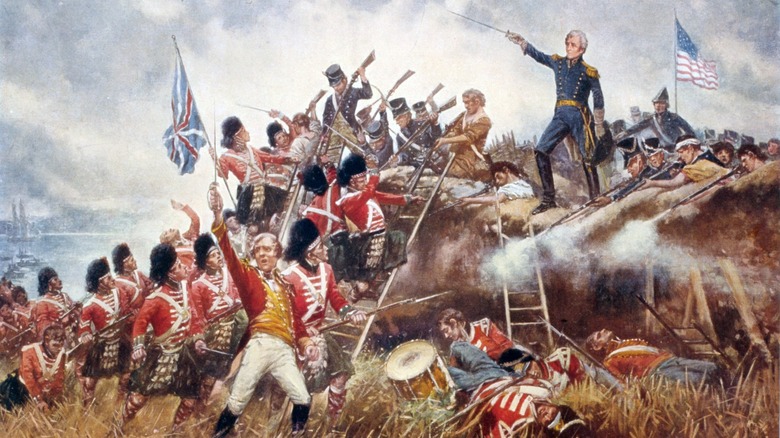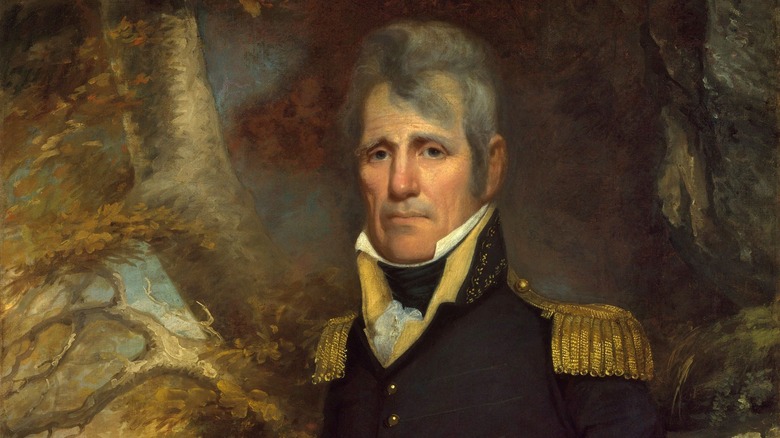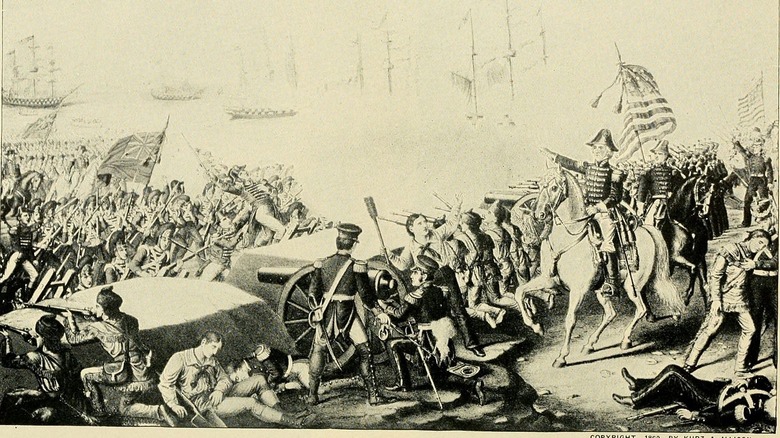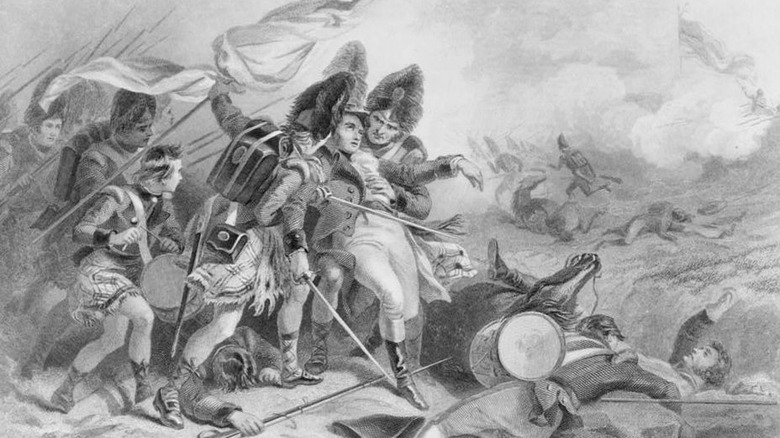This Item Was Key To American Victory In The Battle Of New Orleans
Americans successfully won their independence from Great Britain in 1783, but it's important to note that Great Britain didn't so much lose the war as got tired of it. In the late 18th century, Great Britain had the best military machine of any nation. If King George III had really wanted to go all-in, there's little doubt the war would have ended much differently.
But as the American Battlefield Trust notes, the people of Great Britain were kind of over it. The American colonies were incredibly valuable, but also very expensive to maintain, defend, and administer. There was a growing sense that they weren't worth all the trouble, and that the country should cut its losses and let the colonists flounder on their own.
Cut to the War of 1812. As History notes, once again America was outmatched and came close to defeat, but managed to rally in 1814 and force Great Britain to once again settle for peace. The treaty was signed on December 24, but news traveled slowly — so slowly that on January 8 no one had heard it, resulting in the final battle of the war, the Battle of New Orleans. This is the battle that made Andrew Jackson a national hero and paved the way for his presidency — and America would have lost it except for one thing they built, and one thing the British lacked.
Jackson was outnumbered and outsupplied
As HistoryNet explains, a lot was riding on the outcome of the War of 1812. The British insisted they get to keep anything they captured during the conflict and pushed for the absolute right to travel up and down the Mississippi free from any tolls or restrictions. In other words, they wanted to destroy America's independence in all but name. As a result, Major General Andrew Jackson knew that the stakes were sky-high for America when the British invaded New Orleans.
And the forces Jackson had under his command did not compare favorably to the professional, well-supplied British army. As noted by the American Battlefield Trust, Jackson's "army" was made up of what you might charitably call a "coalition" of various groups, frontiersmen, local militia, volunteer citizens, Choctaw Indians, smugglers and other criminals, and regular troops. According to History, not only were Jackson's forces untrained and divided, he was outnumbered about 8,000 to 4,500 on the day of the battle. As author Curtis Manning writes, the citizens of New Orleans were so disturbed by the shabby appearance of the "army" — not to mention its notable lack of guns — that they raised $16,000 immediately just to buy the necessities.
The Americans built a key defense
What did the Americans have that won the day? Shovels.
Andrew Jackson was potentially a terrible human being, but he was an ace military commander. He knew exactly what he had in New Orleans (a ragtag force lacking training and discipline), but he also knew the geography of the area, and he knew how to use it to his advantage. So he ordered his forces to start digging.
As noted by History, Jackson had his men construct a 7-foot-tall rampart — a fortification made of dirt, cotton bales, and timber — across a canal where he knew the British would have to march in order to approach the city. Ordering his men to work through the night, they constructed a 1,500-yard-long fortification dubbed "Line Jackson" and dug a moat around it for extra security. HistoryNet explains what happened next: British commander General Pakenham marched right where Jackson predicted and sought to overwhelm the American forces with 5,000 men. Instead, trapped between the river and the rampart, the British forces were massacred. The Americans could simply choose their shots and take their time from behind the safety of the fortifications.
Not only did Pakenham lose thousands of men, he also lost any chance of overwhelming the city's defenses — and control over his army. Panic seized the British soldiers and discipline melted away, and the day was lost. In the end, the British lost about 2,000 men. The Americans? About 100. All because they had shovels.
The British lacked one key item
What did the British lack that lost the battle for them? Ladders.
Invading armies often face hostile localities and unfamiliar territory, so their supply lines become paramount. As noted by HistoryNet, the British supply lines stretched back 80 miles by the time they got to New Orleans, a huge distance back in the days before motorized transport. And one of the items that got bogged down dozens of miles away from the spot where it was needed were the wooden ladders that would have allowed the British to scale Line Jackson and possibly overwhelm the Americans with their superior numbers.
History tells us that General Pakenham went personally to find the regiment carrying the ladders in order to lead them to the rampart, which gives you some idea how crucial they were. Unfortunately, by the time he arrived with the ladders it was too late: His forces had been cut to pieces by American sharpshooters in the meantime, and a general rout was unavoidable. Considering the numerical advantage the British had, if they'd anticipated Line Jackson and ensured their ladders were close to the front lines, they may very well have won the day — which means New Orleans might have been British today.



